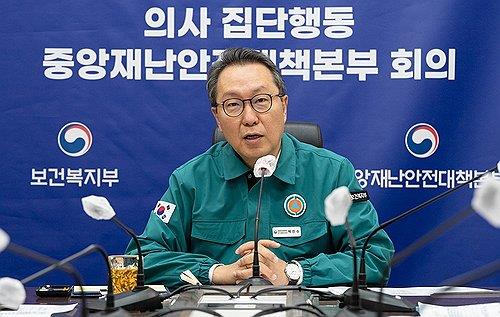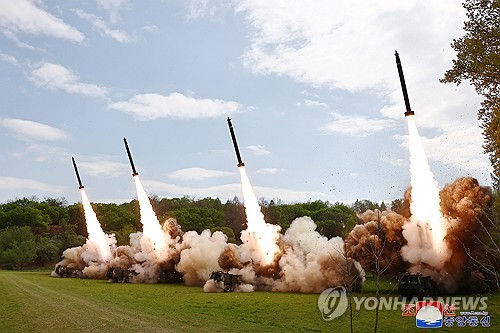(EDITORIAL from Korea Times on April 24)
OK with fewer Chinese
Visitors from other nations jump; no ‘tourism cliff' occurs
The fear of a "tourism cliff" triggered by China's decision to block its people from visiting Korea has by and large not materialized. The shortage of Chinese tourists is being made up for by an increase in the numbers of local tourists and those from Japan and Southeast Asian countries. The general response from these tourists is positive _ without armies of Chinese, it is better: cleaner, quieter and more peaceful. True, their presence is missed by some members of the tourism industry from bus rental services to restaurants but the impact seems bearable.
On Jeju, Korea's top tourist destination, local tourists were tallied at 3.71 million in the January-April period, up 320,000 or 9.5 percent from 3.39 million from the previous year. Chinese visitors dropped from 690,000 to 460,000 or 33.3 percent. Still, the total number of visitors rose 2.3 percent to 4.3 million.
Yonhap News Agency quoted a tourist surnamed Park, 38, as saying about her recent visit to Jeju, "Last autumn when I visited, there were so many Chinese that one couldn't walk without bumping into them. They also talked loudly and didn't respect basic etiquette. Now, with fewer Chinese, I can enjoy myself more."
It's not just local tourists but visitors from countries other than China who have been on a steep increase. According to the Justice Ministry, 379,000 Chinese visited Korea in March, down 38 percent from the month before. However, Japanese visitors jumped 48 percent to 276,000 and Americans climbed 37 percent to 81,700. Visitors from Hong Kong and Thailand went up about 30 percent, while Malaysian tourists skyrocketed by more than 50 percent.
The Chinese government's ban on Korean tours has come as part of its retaliatory package against Korea for pressing ahead with the deployment of Terminal High Altitude Area Defense (THAAD) against North Korea's missile threat. Arguing that the U.S. missile interceptor radar will sweep deep into its territory, Beijing has cut off cultural exchanges and harassed Lotte and other Korean companies operating there. A major impact on the Korean economy was initially feared because of China's status as Korea's biggest trading partner but the retaliation has been limited to the tourism sector.
As in the case of Jeju, the dwindling Chinese tourists are a boon in other areas too. In Myeong-dong, a popular tourist market in central Seoul, the streets had been jam-packed with Chinese, who carelessly smoked, spat, littered and talked loudly to the point that Koreans avoided going there. With fewer Chinese, the situation has improved. This improvement has come at a time when the tourism industry is in dire need of making a transition from its dependency on Chinese visitors _ diversifying portfolios of tourists, upgrading products in general and customizing them in particular. In that sense, the Chinese ban has turned out to be a blessing in disguise.
(END)
-
 Overdue debut of Korean abstract art pioneer Yoo Young-kuk at Venice Biennale
Overdue debut of Korean abstract art pioneer Yoo Young-kuk at Venice Biennale -
 Relax, immerse yourself in scents at Venice Biennale's Korean Pavilion
Relax, immerse yourself in scents at Venice Biennale's Korean Pavilion -
 S. Korea marks 30th anniv. of Korean Pavilion at Venice Biennale with contemporary art
S. Korea marks 30th anniv. of Korean Pavilion at Venice Biennale with contemporary art -
 Ex-Justice Minister Cho slams Yoon's statement on crushing election defeat
Ex-Justice Minister Cho slams Yoon's statement on crushing election defeat -
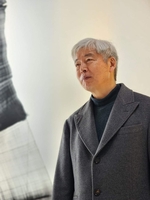 Artist Lee Bae captures ethereal Korean aesthetics at Venice Biennale
Artist Lee Bae captures ethereal Korean aesthetics at Venice Biennale
-
 Overdue debut of Korean abstract art pioneer Yoo Young-kuk at Venice Biennale
Overdue debut of Korean abstract art pioneer Yoo Young-kuk at Venice Biennale -
 Relax, immerse yourself in scents at Venice Biennale's Korean Pavilion
Relax, immerse yourself in scents at Venice Biennale's Korean Pavilion -
 Artist Lee Bae captures ethereal Korean aesthetics at Venice Biennale
Artist Lee Bae captures ethereal Korean aesthetics at Venice Biennale -
 S. Korea marks 30th anniv. of Korean Pavilion at Venice Biennale with contemporary art
S. Korea marks 30th anniv. of Korean Pavilion at Venice Biennale with contemporary art -
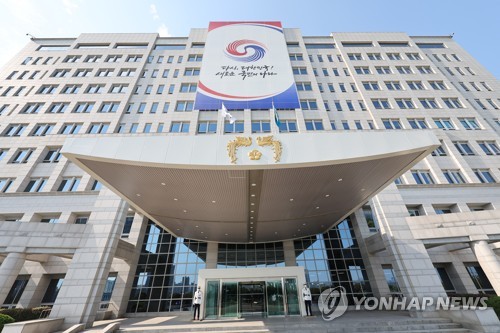 (LEAD) Presidential office denies Moon aides under consideration for PM, chief of staff
(LEAD) Presidential office denies Moon aides under consideration for PM, chief of staff
-
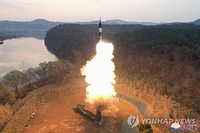 (LEAD) N. Korea fires several short-range ballistic missiles toward East Sea: JCS
(LEAD) N. Korea fires several short-range ballistic missiles toward East Sea: JCS -
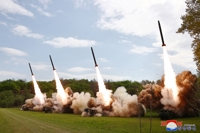 (LEAD) N. Korea says Kim guided simulated nuclear counterattack drill
(LEAD) N. Korea says Kim guided simulated nuclear counterattack drill -
 Hybe launches audit into NewJeans' label ADOR over alleged independence move
Hybe launches audit into NewJeans' label ADOR over alleged independence move -
 N. Korea says Kim guided simulated nuclear counterattack drills for 1st time
N. Korea says Kim guided simulated nuclear counterattack drills for 1st time -
 Hybe says spinoff attempt by subsidiary label revealed clearly
Hybe says spinoff attempt by subsidiary label revealed clearly



















